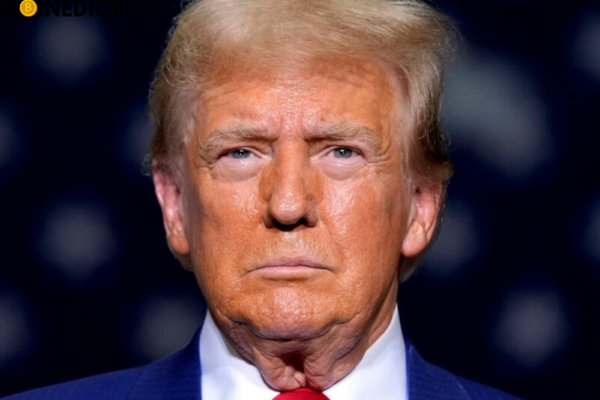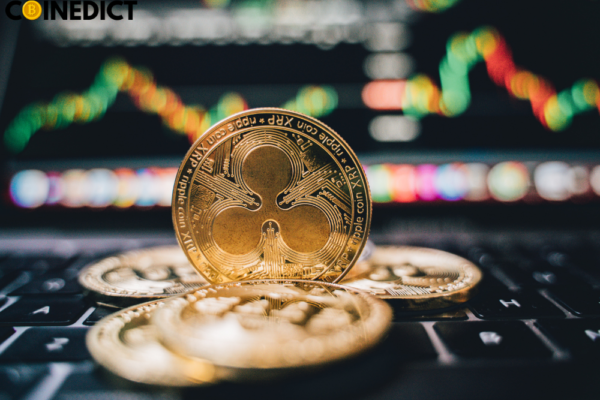Bitcoin has reached an astonishing high, approaching the $90,000 mark in the past 24 hours, as optimism surrounding Donald Trump’s recent election victory fuels an impressive surge. Investors and analysts alike attribute much of this growth to Trump’s pro-crypto stance and his promises of a more crypto-friendly regulatory landscape in the United States. Since November 5, 2024, Bitcoin has climbed over 30%, marking an all-time high for the cryptocurrency and sparking widespread excitement in the crypto community. Why Trump’s Election Win Boosted Bitcoin and the Crypto Market Throughout his campaign, Trump expressed strong support for the cryptocurrency industry, vowing to reduce regulatory barriers and foster a favorable environment for blockchain innovation. His commitment to making the United States “the crypto capital of the planet” resonated with investors who saw his victory as a potential turning point for digital assets in the U.S. With Trump’s win, the market is now anticipating policies that could encourage investment, innovation, and wider adoption of cryptocurrencies. Investors expect these policies to include tax reforms, clearer regulatory guidelines, and possibly even government-led support for digital currencies like Bitcoin. As confidence grows in a more favorable U.S. crypto environment, both retail and institutional investors have poured into Bitcoin, resulting in the massive price surge. Bitcoin’s Rise Spills Over to Altcoins The excitement isn’t limited to Bitcoin alone. Other cryptocurrencies, including Dogecoin, Cardano, Ether, and Shiba Inu, have experienced remarkable gains in the past week, some rising by as much as 150%. This altcoin rally reflects broader market sentiment that a crypto-friendly administration could benefit the entire digital asset ecosystem. As investors diversify their holdings in anticipation of a booming market, altcoins have become a focal point, with many seizing the opportunity for significant gains. Dogecoin and Shiba Inu, both popular meme coins, have particularly benefited from the heightened interest, showing the enduring appeal of community-driven tokens in times of market optimism. Meanwhile, established assets like Ether and Cardano continue to attract investors who see them as key components of a growing decentralized financial landscape. The ripple effect across the crypto market illustrates a renewed wave of enthusiasm, one that could spur further growth if Trump’s policies meet investor expectations. What Trump’s Pro-Crypto Policies Could Mean for Bitcoin As the U.S. shifts toward potentially crypto-friendly policies under Trump, Bitcoin’s role as a leading digital asset could strengthen. Expected regulatory reforms may remove the ambiguity surrounding crypto, which has long been a barrier to institutional investment. Clearer guidelines could reduce legal risks for businesses and investors, creating a safer and more transparent environment for crypto trading and innovation. Additionally, should Trump’s administration explore options such as a national Bitcoin reserve or a framework to integrate Bitcoin into mainstream finance, it would further legitimize Bitcoin as a global asset and bolster its perceived value. The increased acceptance could also drive up adoption rates, positioning Bitcoin as both a hedge against traditional financial markets and a viable option for everyday transactions. Crypto Market Momentum: Is More Growth on the Horizon? With Bitcoin nearly reaching $90,000 and altcoins showing unprecedented gains, the cryptocurrency market is in a bullish phase that could continue if Trump’s administration delivers on its promises. The influx of institutional investment, combined with the growing interest from retail investors, points to an exciting future for the industry. However, investors should remain mindful of potential volatility. The crypto market is known for rapid fluctuations, and while Trump’s pro-crypto stance has fueled optimism, any shifts in policy could lead to price swings. Nonetheless, the overall sentiment remains positive, and many believe that this rally represents the start of a long-term upward trend for digital assets. Conclusion Bitcoin’s recent surge to nearly $90,000 signifies a historic moment, spurred by investor confidence in Trump’s pro-crypto stance and the prospect of a more favorable regulatory environment. This rally has not only strengthened Bitcoin’s standing but also energized the altcoin market, with assets like Dogecoin, Cardano, Ether, and Shiba Inu experiencing massive gains. As the crypto market responds to these developments, investors are looking ahead to see if Trump’s policies will indeed create a “crypto capital” in the United States. The coming months will be pivotal for the industry, as the anticipated policies take shape and the U.S. positions itself as a potential leader in digital finance. For now, the market remains hopeful, with Bitcoin and other cryptocurrencies riding a wave of optimism that could define the next chapter of the crypto revolution.


















